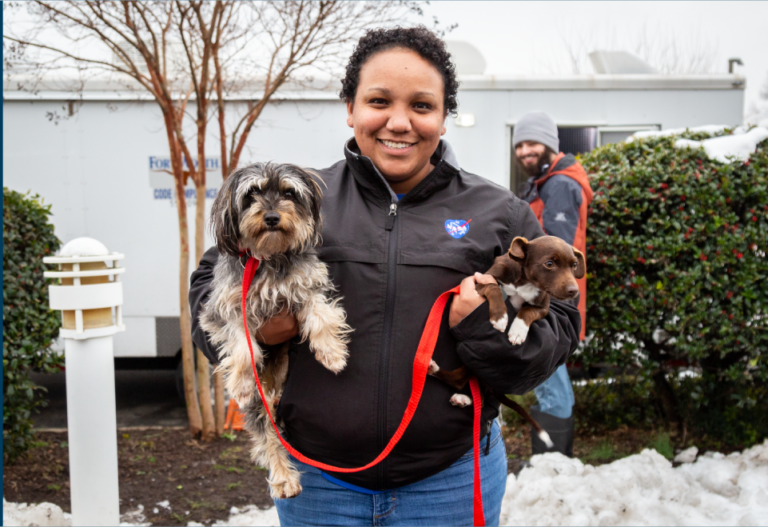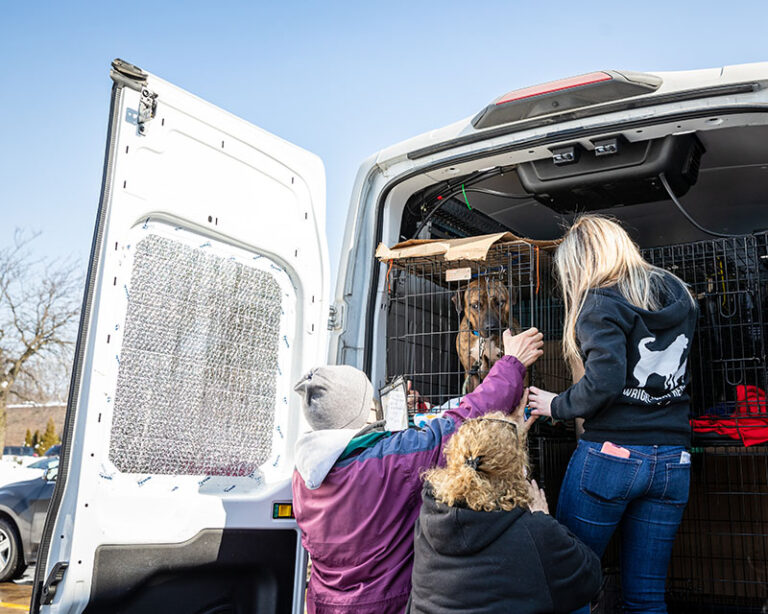Animal service officers with Cabot Animal Support Services carry bags of fence-mending tools around on their trucks. When a dog gets loose, or if they see a fence with a hole in it leaving the potential for a dog to get loose, the ASOs fix the fence.
This is Cabot’s Fences for Fido program. It’s as simple as that.
The reason this program exists is more complicated. Five years ago, CASS’s director Mike Wheeler wrote a citation for a man whose dog got out. The dog got out again. Mike wrote another citation.
“I took the dog, impounded the dog,” Mike says. “He got a citation for not being current on his vaccinations. He got a citation for no city license.” The owner wanted to bring his dog home, but he couldn’t afford the citations, which were adding up with each between $125 and $175.
“So he got a citation for failure to reclaim,” Mike says.
The man then failed to show up for court. His driver’s license got suspended. He was a truck driver, so he then lost his job, too.
“And I don’t know what happened after that. They moved out of the house,” Mike says. The dog was adopted into another family.
This was how things were done. Mike hadn’t deviated from standard procedure. But he couldn’t get this man, and his dog, and his fence, out of his head. The guilt over the compounding harms weighed on him—over having introduced this man into a “broken” judicial system.
Mike couldn’t shake the conviction that if only he’d taken a different approach from the start, this whole situation could have turned out better for everyone involved.
“I could have wired his fence together for probably less than $3, and put the dog back in there, and I didn’t do it,” Mike says.
That insight, and that guilt, led to the creation of Fences for Fido. The program began informally about five years ago, then was officially incorporated into CASS’s operations in 2020.
In the beginning, Mike says, officers took pictures of every fence they fixed. Now this is such an established part of how things are done, that they don’t even take those pictures anymore. In fact, Mike had to go dig up the photos you’ll see peppered through this blog.
“It’s just an everyday thing. It’s no different than handing somebody a leash in the field,” Mike says.
Note to other orgs: If we at HASS can offer some advice, take lots of pictures, even of the work you consider to be everyday and ordinary! Share them, too!
In this Q&A, which is edited for space, Mike shares more details about Cabot’s Fences for Fido program—with lessons and tips for how other organizations can get into mending fences, too.
HASS: How does Fences for Fido work in practice? Is this something that people request or is it something where if a dog is getting out, your officer will come and say, hey, we can do this for you?
Mike Wheeler: All my officers now carry fence repair kits in their vehicles. It’s a very basic fence repair kit. And all this was donated. We didn’t pay a dime for any of this. This was all donated from Home Depot and another company here.
We have a bag, they have a hammer, they have nails, they have baling wire, they have wire cutters, pair of pliers, all the things. Just think temporary repairs. If it goes beyond temporary, if they need new fence pickets or something, then that’s something we’ll come back out and do, something that simple.
We’re not going to rebuild somebody’s fence for them, but we do want to make sure their animals stay in.
It’s nothing we advertise, it’s nothing we promote, it’s nothing we make sure to make a big deal about. It’s just no different than them getting in the truck and going to work. It’s just second nature.
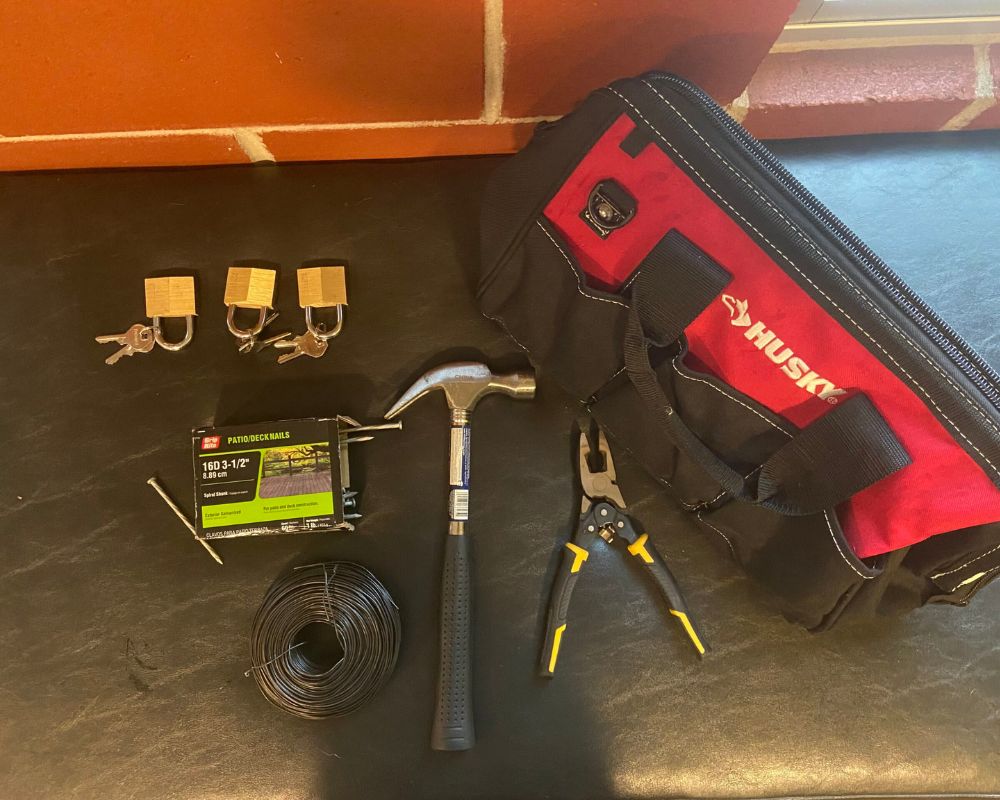
If an officer notices that a dog gets out, or it has a potential to get out, then we’ll do a quick repair. They also carry padlocks in that bag, because a lot of dogs are smart. I mean, people don’t give all credit to dogs. They can lift that chain link fence latch and get out.
So my officers will put a lock on it and then tape the key to the front door with a note saying “This lock courtesy of Cabot Animal Support Services. Your dog was getting out through your fence.” And once again, we’re looking at less than $10 to fix any fence, just temporary repairs.
We’re not rebuilding it, but that saves the dog from having to come to us, that saves them having to try to find their dog, that saves them from having to pay the impound fees. I mean the whole chain of events that this one little act that we do, it takes care of it all.
This is 100% officer driven. It’s 100% officers in the field, as they come across dogs that are getting loose, neighbors calling about the dog.
HASS: So as a matter of logistics, your officers repair the fences without necessarily talking with the owners?
Mike Wheeler: Correct. We’ll put the dog right back in the fence and repair it right there on site.
Owners typically work. So if we have to take the dog into our shelter and then find a way to get ahold of the owner, and then go back out and repair the fence, that defeats the whole purpose of the program.
The purpose of the program is for them not to have to come in to pick up their animal, not to have their animal in our shelter whatsoever. It’s just a matter of putting them back in and wiring the fence together, or driving in some nails in some loose pickets. So we don’t ask permission. We do it and we move forward.
When returning the dog there are several factors that we look at to verify the house is the right house. Here are a few: 1. We follow the dog to their house and the dog goes in the fence. 2. If the dog is in the yard and does not want to leave the yard. 3. The neighbors could verify the dog lives there. 4. Open gates, holes in fences, pickets on the ground. 5. Could be the dog is a repeat offender and we recognize the dog and the address. I would assume most ASOs across the country could give a list of ways they have experienced that help them determine where a dog lives.
HASS: And just put the dogs back.
Mike Wheeler: And just put them in, that’s correct. There’s no reason for the dogs to come with us. None whatsoever.
Now, once again, we do the door tags, let them know the dogs got out. and we fixed the fence. We also make sure they understand this is a temporary repair. We’re not professional fence builders. We’re just doing a temporary repair, we’re throwing a lock on the gate. They can keep the lock.
HASS: As a practical matter, how did your officers learn how to fix a fence?
Mike Wheeler: We are highly self-sufficient in our department. If anything breaks at our shelter, we fix it. Every person that starts working in our facility learns how to fix things because we fix it all.
We don’t call in people to fix everything. If we need a gate fixed or we need a fence fixed at the shelter, we’re the ones fixing it. So, it’s just something they learn.
And I’ve gone out and there’s been some really ugly fixes. I won’t lie. I mean, there’s been some botched jobs out there. But ugly or not, it worked and that’s the key.
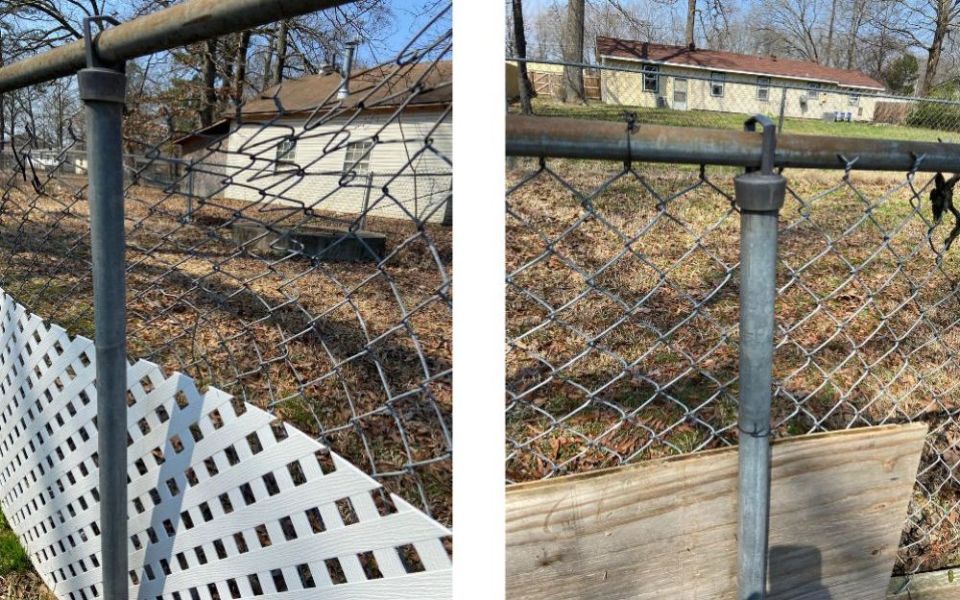
We definitely save a lot of money around the shelter rather than calling out a contractor every time we need to repair something. I wish I had the time to track those savings but every penny we save by doing something else is money we can use to help keep families together.
HASS: And what lessons have you learned about doing this? What mistakes did you make at one point that you figured out how to stop making?
Mike Wheeler: Sometimes it’s better to go ahead and put the dog in the truck while we’re doing the repairs, because if you put them back in the fence, then go do the repairs, the dogs are pushing you on you trying to get out the whole time you’re doing repairs.
And also just because we fix one hole in a fence, doesn’t mean we fix that hole and have to walk away, because there’s nothing worse than fixing that hole and then you turn around the dog sitting behind you because on the side of the fence, there were two more holes.
So you have to check the entire fence. And I think that’s the biggest.
HASS: How do you communicate about this program with the public?
Mike Wheeler: If you want to know how we tell people about it, we tell them everywhere we go. And we are everywhere.
We were at our Strawberry Fest, our town festival, over the weekend. We are the biggest draw at the festival, our mobile adoption. So people just swarm to us.
Everybody has a story about a family pet, a friend’s pet, a dog that got out. Those are perfect opportunities for us to talk. A neighbor’s dog is hit by a car. Those are perfect opportunities that we have to tell about our Fences for Fido program, and that we can help residents with their medical bills for their dogs.
They all know somebody who had to give up an animal because they couldn’t afford the pet deposit. Well, then we transition to talking about our pet deposit program. These are all programs we offer that I can have a conversation with anybody and explain how we could have helped that person.
We’re everywhere. My officers have to make three stops a day, what I call positive contacts. They stop three times a day and talk to three strangers. It can be somebody out in their yard mowing, they can stop at the florist stop for all I care and get out and say hi, introduce themselves and ask if there’s anything they can do for them.
That’s it. It’s not that big of a deal. My cell phone number is on every business card I’ve ever given out. I’ve given out over 13,000 in the last 12 years. To every resident who wants it, they can have my personal cell phone number.
This is just how we should do things. We shouldn’t hide from the public. They’re the ones that’s going to help us. We’re making people comfortable. We’re out in the communities, we’re at all the events in the city, we’re at all the civic organization meetings, and I’m there. I don’t always speak, but I’m there in case somebody has a question.
HASS: What recommendations did you have for other organizations that want to try to do this too?
Mike Wheeler: Just do it. It’s a very simple program, it just takes no time at all. My officers may spend five, six minutes doing a temporary repair on a fence and the hours that it’s saving us and at the shelter and everywhere, we just do it.
We don’t try to put up policies and programs in place, just set up and do it. If you don’t have the budget for it like we didn’t, go to the Home Depots, the Lowes, your local hardware stores, and they’ll donate. Just explain the cause to them. It’s really not difficult at all.
I just wish more people would do that instead of trying to think about all the negatives that could happen. You mentioned putting the dogs back, or you mentioned asking permission from the owners to fix their fence. I’ve never had an owner get mad about it. If they do, I think I would take that one, but it doesn’t happen.
People don’t get mad when you’re trying to help. But if you have to wait, you’ve got to be perfect… Perfection will kill a program.
HASS: Can you talk about how Fences for Fido fits in with your overall mission to help people keep their pets, and help pets not enter the shelter when they don’t have to? To try to make families’ lives better and easier instead of harder and worse?
Mike Wheeler: For many years, we only focused on the animal. That’s all we focused on. And we do that now, animal welfare across this country, the animal is our main concern. But it’s not really.
If we focus on the people, the animal’s taken care of. And the bond they have is so strong and so necessary to physical health, but also the mental health of people.
We no longer focus on the animal. We take care of the dogs and pets and cats and everything we get in 100%, but it’s the bond they share and how to keep them home. It’s changed our whole community.
If somebody has to give up an animal because it’s sick or injured, there’s a reason that three months later, they go get another one. Because they need that bond. It’s vitally important to being a humane community.
And we never focused on that before. And we are now. And our community response is amazing.
I mean, they’re giving us a brand new facility after building us a new facility in 2006. And our new facility is nothing like our other one. It’s all about programs and the health of the animal and keeping families together, because that’s what’s important.
When I talk to the politicians, when I talk to the civic organizations, when I talk to everyone, I’m talking about what this does for the people in the community. People take care of animals, so we have to love them too. Each and every one of them, we have to love and treat as if they’re the reason we exist.
And that is where your politicians and everybody comes in. That’s where things get done, is because they want to be a part of that. Plus, people vote, animals don’t.
People are always thankful, but don’t look for the praise. Don’t look for being thankful. If you go up and say we did this for you, that’s not really what they want. All we want to tell them is, “Look, your dog was getting out. We did temporary repairs just to make sure your dog didn’t get out anymore. If there’s anything you need from us, please let us know.” That’s all.
We’re not there for accolades and everything. We just want to make sure the families stay together and that we are not becoming part of the problem, and keeping them in a system that’s really broken. I mean, our judicial system is broken, and I don’t want to be a part of that.
In a time where turmoil is everywhere, your shelter should be the most positive thing in your city, and ours is.
Be sure to check out the communications kits created by Human Animal Support Services and HeARTs Speak! They will help you talk to your community about the incredible work you’re doing to keep people and pets together. This one’s on community-focused animal services, and this one is on keeping families together. Five kits have been published so far, with new ones coming out on the first Thursday of the month through 2022.
And please reach out if you have a tip for a Steal This Idea blog!
